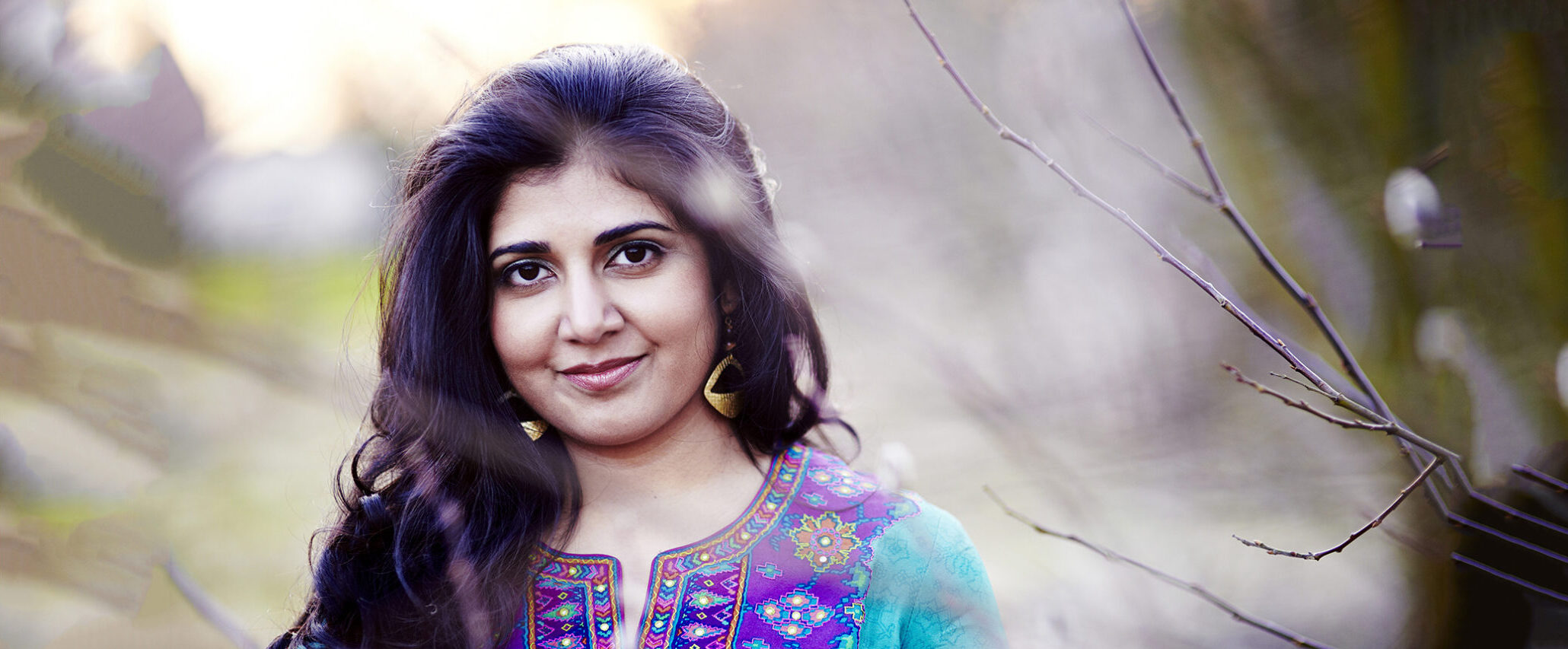
Vocalist, composer, and ethnographer Kavita Shah returns to The Rubin this Friday to present her interdisciplinary work “Folk Songs of Naboréa.” What does the music of a futuristic, post-nuclear society sound like—one in which humans have abandoned technology and national and racial identities have eroded? Kavita answers this question and more as she engages us in understanding the rituals of Naboréa.
1. What about folk music inspires you?
Folk music inspires me because it is a reflection of the rituals that we hold sacred as humans. Wherever you go on Earth, you will find songs that mark important events in society and in daily life: birth, coming of age, death, sleeping, harvesting crops, etc. It’s amazing to me that there is a common thread in these songs even if they developed independently and worlds apart. As such, for me folk music—which oftentimes is also vocal music, transmitted orally from one generation to the next—contains implicit knowledge about who we are as humans and the values we share across time. I feel strongly that this ancient knowledge is something we can continue to learn from and apply to the most pressing issues facing society today.
2. What other art forms will we hear in this piece?
You will hear elements of extended vocal technique, jazz improvisation and harmony, 12-tone composition, “folk” harmonies (thirds, pentatonics), and polyrhythms. Aside from hearing, it is seeing that brings this piece to life, as we integrate movement into the music to tell the story of Naboréa.
3. How is “Folk Songs of Naboréa” different from your past works?
“Folk Songs of Naboréa” is my first large-scale, interdisciplinary work. It departs from the more conventional performance setting that I am used to, which is performing with an ensemble directly for the audience. Here there is no band and no amplification—just 7 voices (and a kora in one piece, which embodies a dream from the past). It is also different in that there is an overarching story line about life in Naboréa, and the piece incorporates movement and theatrical elements to convey that story.
4. You’ve performed here several times before. What do you like best about being at the Rubin?
The Rubin is like a second home to me in New York, and performing here has given me the chance to develop my craft by engaging, increasingly with each performance, with aesthetics and broader thematics to contextualize my music. It also connects me to my Indian heritage, sometimes to things about my own past that I have buried and forgotten, and to my spirituality, which plays a big role in my compositional process.
5. What can visitors expect from this performance?
Visitors can expect an immersive experience through which they are transported to another world. Naboréa also embodies a truly multiracial and multi-phonic society, one in which all my rich and diverse inspirations can live together in harmony and in dialogue, without fear of labels or cultural hierarchy. To share this possibility with the audience at a time of such political and social polarization in our society is to share an extremely powerful message of inclusion.
Tickets and more information about Kavita Shah’s “Folk Songs of Naboréa” on October 26, 2018.
More about the Performer
Kavita Shah is a vocalist, composer, and lifelong New Yorker who makes work in deep engagement with the jazz idiom while addressing and advancing its global sensibilities. Hailed by NPR for possessing an “amazing dexterity for musical languages,” Kavita incorporates ethnographic work on Latin American, West African, and South Asian traditions into her music. Her 2014 debut album “Visions,” co-produced by Lionel Loueke, was released to great critical acclaim, and her 2017 Park Avenue Armory premiere “Folk Songs of Naboréa” was named a Top 10 concert of the year by Nate Chinen of the jazz radio station WBGO. In 2018, Kavita released “Interplay,” an album of standards and originals in duet with bass virtuoso François Moutin, which was nominated for a Victoire de la Musique (French Grammy Award) for Jazz Album of the Year. Kavita regularly performs her music at major concert halls, festivals, and clubs on six continents. She holds an A.B. in Latin American Studies from Harvard and an M.M. in Jazz Voice from Manhattan School of Music.

